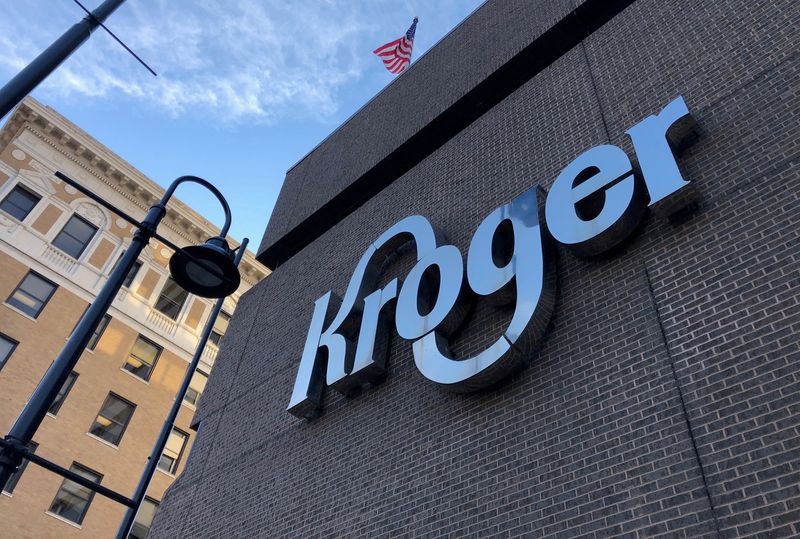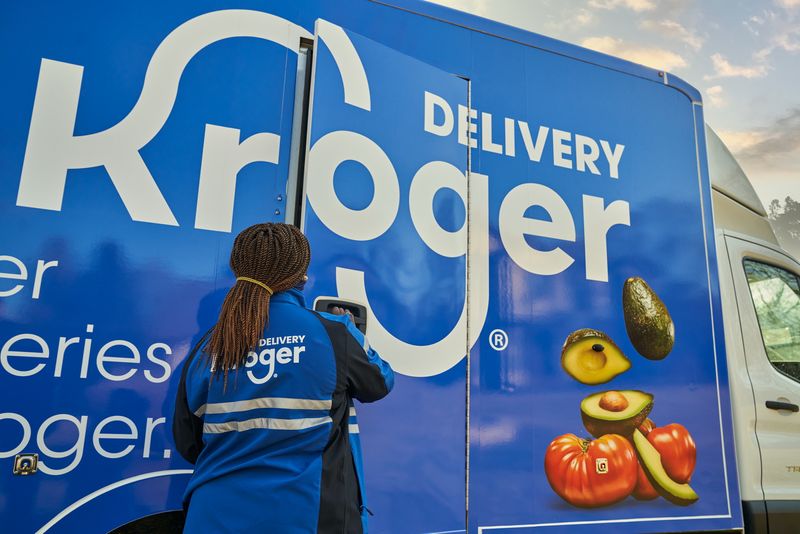By Granth Vanaik
(Reuters) - Supermarket chain Kroger (NYSE:KR) in a cautious move on Thursday reaffirmed its annual forecasts after it beat Wall Street estimates for first-quarter profit and same-store sales on steady demand for essentials and easing supply chain costs.
Shares of the retailer, which had consistently raised its outlook over the past two years, fell 4.5% to $45.07 after the dull forecast.
"Investors wanted to see a forecast raise," said Telsey Advisory Group analyst Joseph Feldman, adding there was hope that Kroger could have performed a bit stronger considering robust grocery sales seen at some of its competitors.
Last month, rival Walmart (NYSE:WMT) raised its annual forecasts as more Americans shopped for its lower-priced groceries and other essentials.
But Kroger CEO Rodney McMullen blamed the "economic environment" for its decision to not raise the forecast, saying it was "significantly impacting our budget conscious shoppers."
Target (NYSE:TGT) has also maintained its full-year forecasts amid a gloomy spending environment.
"Least loyal customers... are clearly prioritizing the price at shelf over other factors such as personalized offers, convenience and quality," Kroger's McMullen said.
Kroger, which is set to buy smaller rival Albertsons in a $25 billion deal, saw net sales rise 1.3% to $45.17 billion in the first quarter ended May, but fell short of estimates of $45.24 billion, according to Refinitiv IBES data.
"Investors had become accustomed to seeing a really strong beat on top and bottom lines, but that wasn't the case this quarter," said CFRA Research analyst Arun Sundaram.

However, Kroger's gross margins rose 21 basis points, compared to a fall a year earlier, benefiting from lower supply chain costs as well as its efforts to source some products closer to its distribution centers.
It also profited from shoppers - including higher-income consumers looking for more economical options amid persistent inflation - preferring its store-label brands to pricier national brands.
